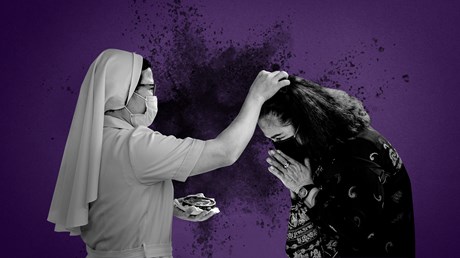The dust from whence we came and will return dirties our hearts now.

With Ash Wednesday this pandemic year, the already dim light of Epiphany gives way to the murkier light of Lent. Epiphany, meaning revelation, marks the bright manifestation of Christ to Gentiles, represented by the Magi. It is a season devoted to shining outward. In Matthew’s gospel, Jesus tells his followers they are the light of the world. “Let your light shine before others,” he says, “that they may see your good deeds and glorify your Father in heaven” (Matt. 5:16).
Even so, Jesus then cautions against being too obvious about it. “Be careful not to practice your righteousness in front of others to be seen by them,” he warns (Matt. 6:1). Do it all in secret, “then your Father, who sees what is done in secret, will reward you” (6:4). While this is a huge relief for those for whom public displays of Christian devotion generate alarming awkwardness, it does seem contradictory. Do we shine our light for others to see or keep it on a dimmer switch?
It may be helpful to view these twin injunctions as counterbalancing rather than contradictory. The concern is over who gets the glory. Jesus encourages us to let our good deeds glow so people may give glory to God from whom all blessings flow. But danger lurks if in doing good you feel entitled to your own glory. Early Christians filed such entitlement under the category of vainglory, the deadly sin of doing the right thing for the wrong reason. With vainglory, you dutifully follow what God demands, yet grow irritated when nobody notices or gives you credit for being so righteous.
The Judaism of Jesus’ day came equipped with disciplines to ward off vainglory. These disciplines—alms-giving, fasting, and prayer—took ...
from Christianity Today Magazine
via


.gif)

.gif)
.gif)
